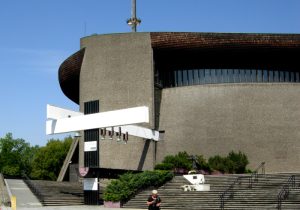The English author Paul Johnson (1928-) has written a short biography on Ronald Reagan, US president 1980-88. Johnson claims that Reagan’s public performance was both acting and sincere – at the same time. If you are old enough, you will remember Reagan, and may also have heard that many years before he became president, he was a Hollywood actor. He was certainly able to act. But is that what he did?
If you are sceptical of politics and politicians (and I believe we all are from time to time), this is something you would care about. Is the politician before you serious or just acting? If listening to a former professional actor, I guess you would pay extra attention to the difference.
But you can also think of a politician as trying to do his/her best. If so, having an actor’s skills must not necessarily lead him to, say escape a difficult question, by acting. It is part of politics to communicate effectively. This is a skill.
Being
In either case, I will not readily accept the proposition put forward by the above-mentioned biographer. I doubt that sincerity and acting can be united like that.
To explore the question, let us introduce „being“ as a third term. We can then say that genuine presence and acting are two modes of being. Moreover, I will claim that genuine presence is being on a deeper level than acting.
Let us look at acting in a theatre as an example. If an actor plays, say in a comedy, may he enjoy the humour of which his performance is a part? The immediate answer is no – he may not laugh out loud. Such laughter spoils the humour. Still, I believe, the good actor enjoys his acting. This may in fact be the key to a successful theatre performance. The good actor has a „double presence“. The audience, on their part, looks at the role performance and at the same time they can enjoy the pleasant atmosphere – perhaps of a job done nicely. In any case, we know for sure that the mood of the audience is important. We can say that actor and audience „meet“ along two dimensions: by their respective roles and by their presence as humans. In film shooting, in contrast, there is no audience. But I believe a good film actor is able to imagine the presence of an audience even if it will only appear later.
Returning to Reagan, the problem is the setting. Unlike theatre and film, the public square does not allow for acting, does it? After all, acting is something special done in a setting designed for it. „Acting“ in a context that does not facilitate acting, is „acting“ in a different sense. That is cheating, isn’t it?
Cheating
Of course, „acting“ in this other sense is also something we are familiar with. It is often about pretending. You may pretend that you are busy because you want to be alone when someone calls. To a moderate extent and with a moderate distance between reality and pretence, I guess this is part of normal social life.
Returning again to Reagan, do I mean that Reagan is either sincere or he is cheating? If he is acting, does it imply he is dishonestly hiding or evading something? – or telling something that he knows not to be true? Well, I think there is yet another possibility. This I will call “shared dishonesty”. If both parties, the politician and his audience, are both enjoying the politician’s speech as a performance and accepting that it is half a lie (or more) – then what takes place is at least “fair”. None of the two parties is cheating more than the other.
Again, this type of “conspiracy” is also something we know from everyday life. In fact, “smart politeness” may include some such performances. In order to avoid embarrassment, you and your conspiracy partner may „agree“ to cooperate on a lie. For instance: you tried to kiss her, but she would not. Instead of recognizing this, you both pretend that the rhythm of the music you danced to suddenly changed, you accidentally stumbled … and the two of you can still meet at work on Monday with a straight face.
Returning to Reagan for the third and last time, in what direction does „shared dishonesty“ in the public square take us? I guess it takes us in the direction of postmodernity. Postmodernity is neither a state of acting instead of being authentic nor is it a state of lying instead of speaking the truth. The postmodern project is about abolishing those distinctions.
And, where does that take us? I am afraid it takes us backwards. It takes us back to pre-civilian times and partly to pre-linguistic times. Can we find a better way before we are quite there?
Artwork of the fortnight
The artwork of the fortnight is the movie “Ex Machina” from 2014. One can say that the film deals with the same theme as the above article: the difference, if any, between acting and reality.
By „acting“ in this special context, however, I do not think of the actors playing in the film, but of the supposed robot which is in the film’s cast. The film deals with the question: is this robot basically (like) a human?

Of course, if I am right about where our societies are heading (postmodernity), the special challenge to AI programmers working on human-like robots will diminish gradually and ultimately disappear. If we in the future no longer distinguish between authenticity and acting, who will care about the difference between a human and a robot?
The Ark
The first ark heard of was built by Noah. Archaeological examinations of the bottom of The Black Sea suggest that many thousand years ago there was inhabited, subsea land where the Black sea is now. A strip of land (a mountain, when seen from the “inside”) kept the Mediterranean out. Gradually, however, the ocean’s waves dug an opening. Unattended to, the first trickling water quickly accelerated into a thundery flood which inundated the area. This may be the origin of the Noah story.
But the story may also be understood symbolically. Below a modern ark.

See also: Kitsch
[…] Les også: Putin er en mann og Acting and authenticity […]